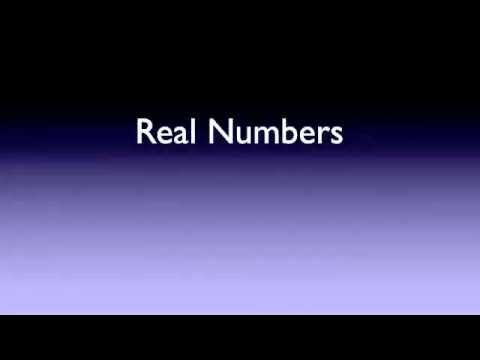McCulloch v. Maryland Explained
Summary
TLDRIn this video, we explore the landmark U.S. Supreme Court case McCulloch v. Maryland, which affirmed Congress's implied powers through the Necessary and Proper Clause of the Constitution. The case arose when Maryland imposed a tax on the Second Bank of the United States, and James McCulloch, the bank's cashier, refused to pay. The Supreme Court ruled that Congress had the authority to establish the bank and that Maryland could not tax it. The case solidified the federal government's power over states and demonstrated the broad interpretation of federal authority under the Constitution.
Takeaways
- 😀 Alexander Hamilton, the first Secretary of the Treasury, recommended the creation of a national bank in 1790 to stabilize the young U.S. economy.
- 😀 The Bank of the United States was established in 1791, but its charter expired in 1811, and Congress chose not to renew it due to controversy.
- 😀 The Second Bank of the United States was created in 1816 to address the growing national debt after the War of 1812.
- 😀 Many residents of Maryland opposed the national bank, viewing it as a federal interference with their state banks.
- 😀 In 1818, Maryland imposed a $15,000 annual tax on banks not chartered by the state, targeting the national bank.
- 😀 James McCulloch, cashier of the Baltimore branch of the national bank, refused to pay the tax, resulting in a lawsuit by Maryland.
- 😀 The Maryland courts sided with the state, but the case was eventually taken to the U.S. Supreme Court.
- 😀 Maryland's attorney general, Luther Martin, argued that Congress lacked the constitutional authority to create a national bank.
- 😀 Daniel Webster, representing the national bank, argued that the Necessary and Proper Clause gave Congress implied powers to create the bank.
- 😀 In a unanimous decision, the Supreme Court ruled that Congress had the constitutional power to create a national bank, and Maryland could not tax it, as it would undermine federal authority.
Q & A
What was the primary issue in the McCulloch v. Maryland case?
-The primary issue was whether Congress had the constitutional authority to create a national bank and whether the state of Maryland could impose a tax on the bank.
What role did Alexander Hamilton play in the creation of the national bank?
-Alexander Hamilton, as the first Secretary of the Treasury, advocated for the creation of a national bank in 1790 to help stabilize the nation's economy, manage government debt, collect taxes, and regulate commerce.
Why did Maryland impose a tax on the national bank in 1818?
-Maryland imposed a tax on the national bank to express its opposition to the bank, viewing it as a federal institution that competed with state banks and did not align with Maryland's interests.
What was James McCulloch's role in the case?
-James McCulloch was the cashier of the Baltimore branch of the Second Bank of the United States. He refused to pay the state-imposed tax, leading to the lawsuit filed by Maryland.
What legal argument did Maryland's attorney, Luther Martin, present in the case?
-Luther Martin argued that Congress lacked the authority to create a national bank because the power to do so was not explicitly listed in the Constitution.
How did Daniel Webster defend the national bank's creation?
-Daniel Webster argued that the **necessary and proper clause** (Article 1, Section 8) of the Constitution granted Congress the implied power to create a national bank as a legitimate means to carry out its enumerated responsibilities.
What is the **necessary and proper clause**, and how was it applied in this case?
-The **necessary and proper clause** grants Congress the power to pass laws that are necessary to carry out its duties, even if those powers are not explicitly stated in the Constitution. In this case, it was used to justify the creation of the national bank as a means of fulfilling Congress's responsibilities such as regulating commerce and collecting taxes.
What was the Supreme Court's ruling in McCulloch v. Maryland?
-The Supreme Court ruled unanimously that Congress had the authority to create the national bank under the **necessary and proper clause** and that Maryland could not impose a tax on the bank, as this would violate the principle of federal supremacy.
Why did the Court rule that Maryland could not tax the national bank?
-The Court ruled that allowing states to tax federal institutions would undermine the authority of the federal government, as states could potentially exert control over federal operations, thus violating the principle of federal supremacy.
What impact did McCulloch v. Maryland have on the balance of power between federal and state governments?
-The ruling in McCulloch v. Maryland reinforced federal supremacy and expanded the scope of implied powers, establishing that the federal government could exercise powers beyond those explicitly stated in the Constitution, thus strengthening its authority over state governments.
Outlines

This section is available to paid users only. Please upgrade to access this part.
Upgrade NowMindmap

This section is available to paid users only. Please upgrade to access this part.
Upgrade NowKeywords

This section is available to paid users only. Please upgrade to access this part.
Upgrade NowHighlights

This section is available to paid users only. Please upgrade to access this part.
Upgrade NowTranscripts

This section is available to paid users only. Please upgrade to access this part.
Upgrade Now5.0 / 5 (0 votes)





